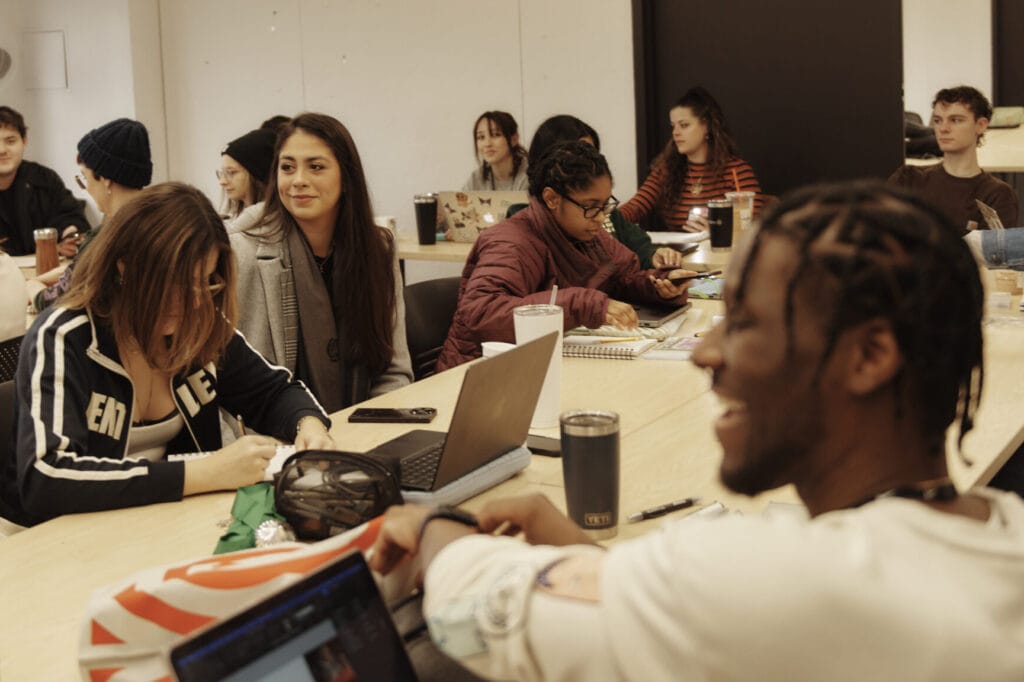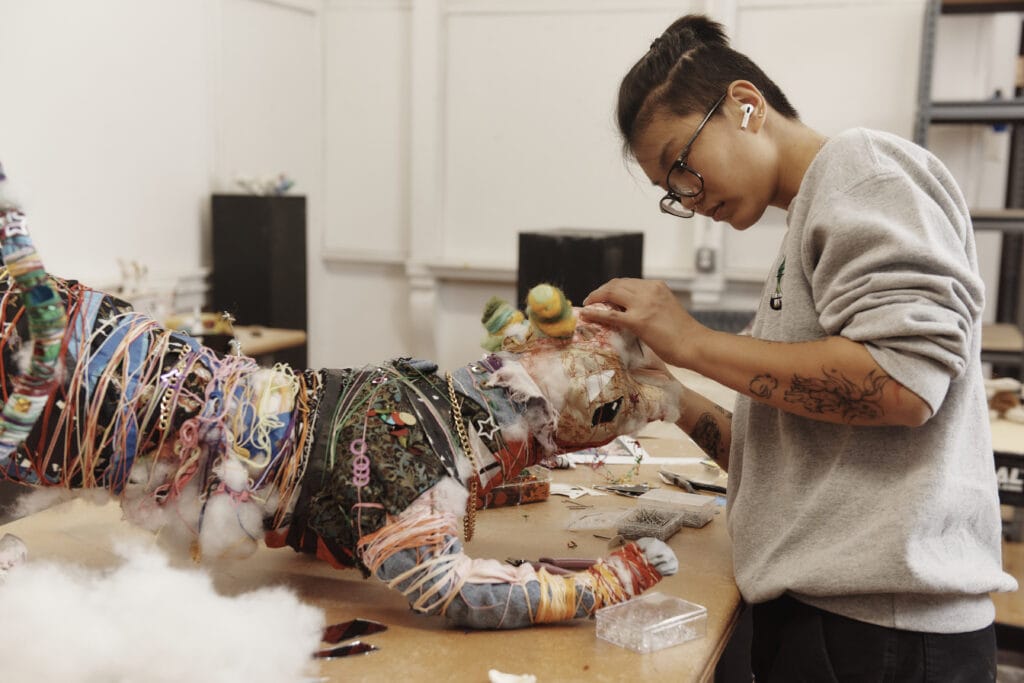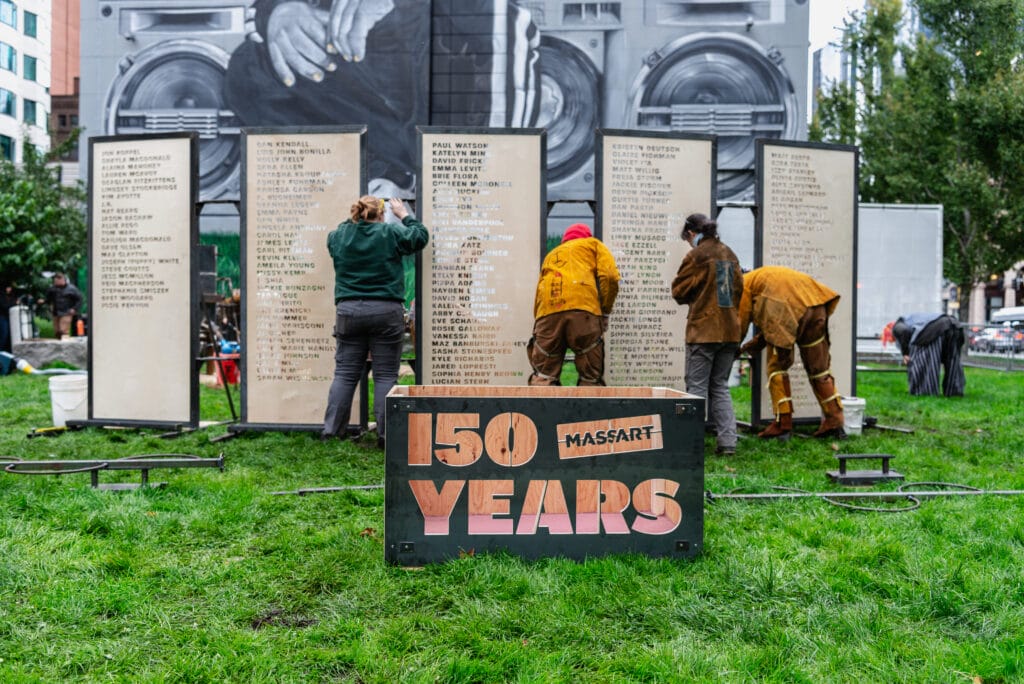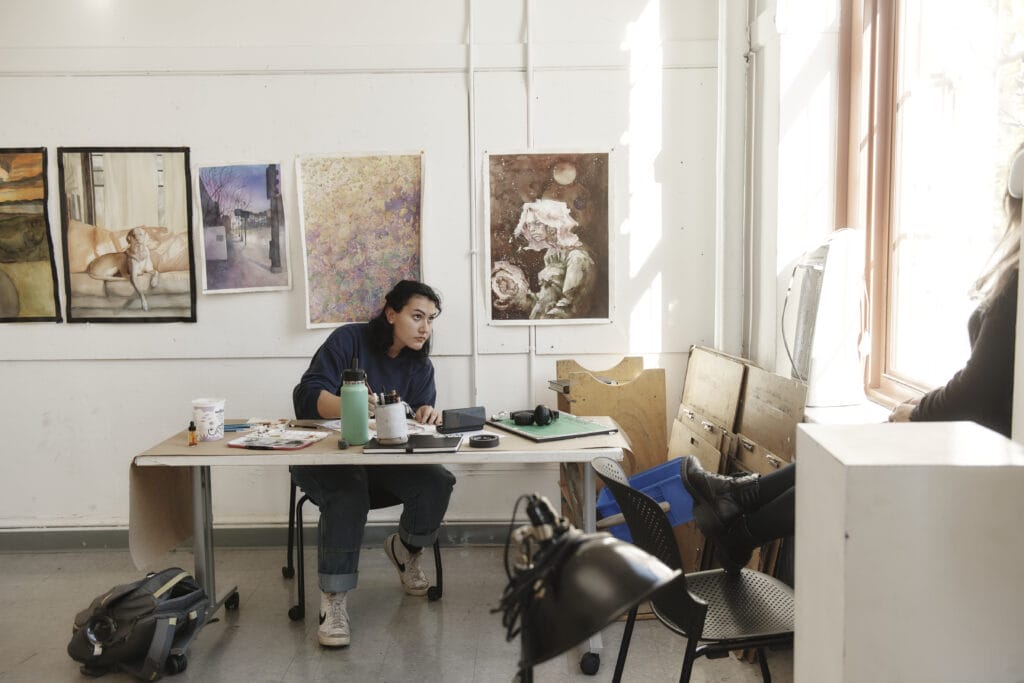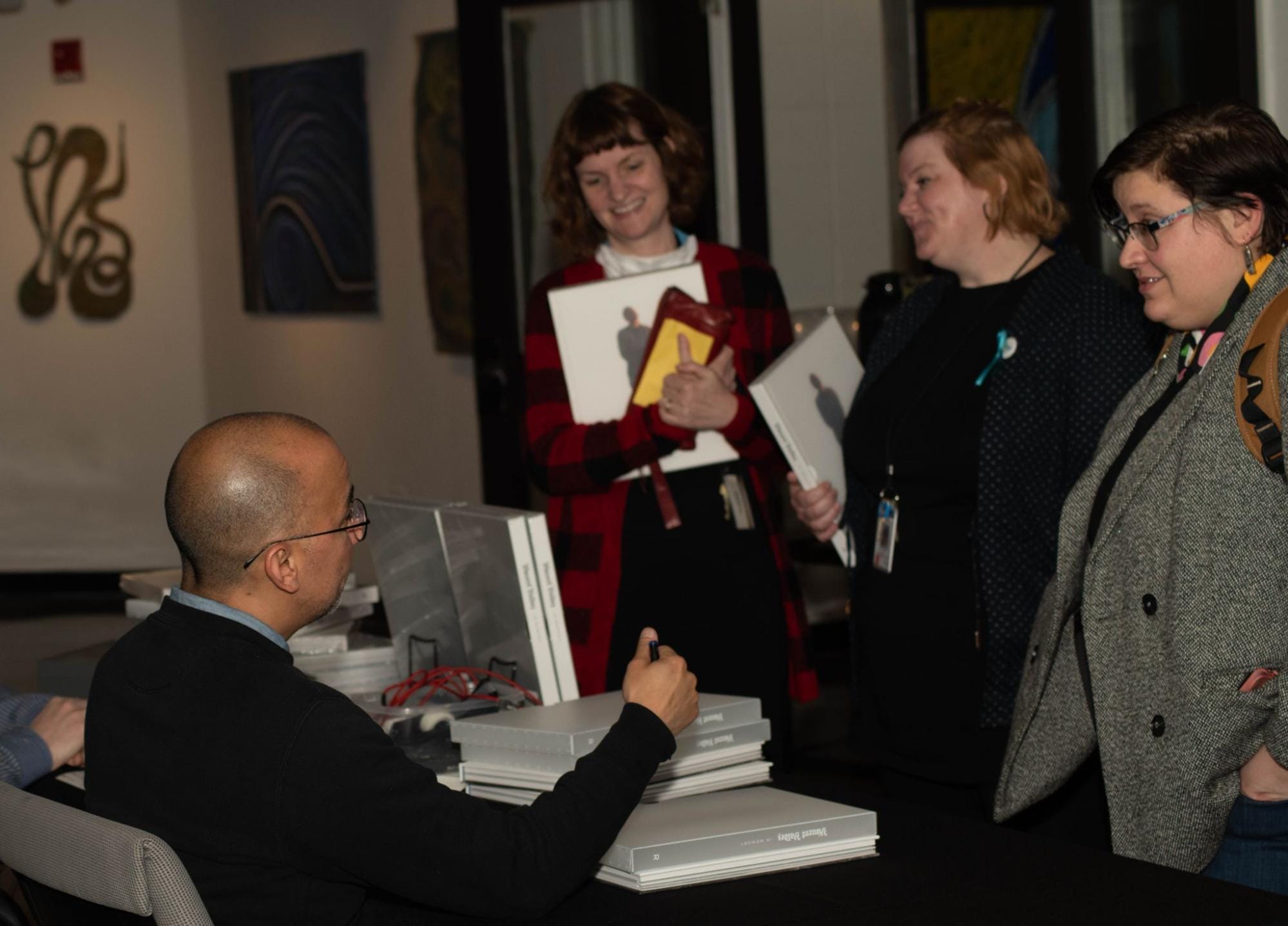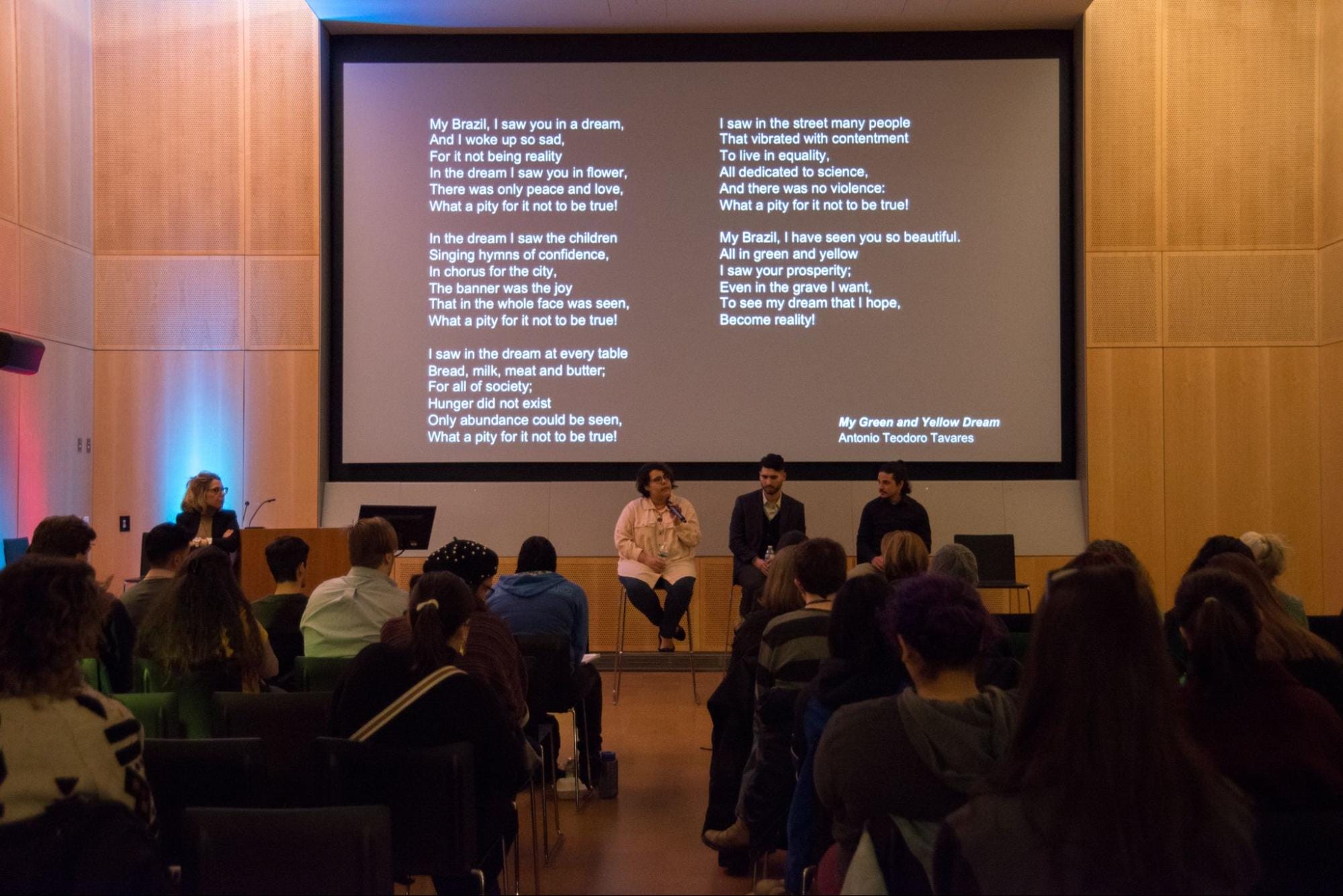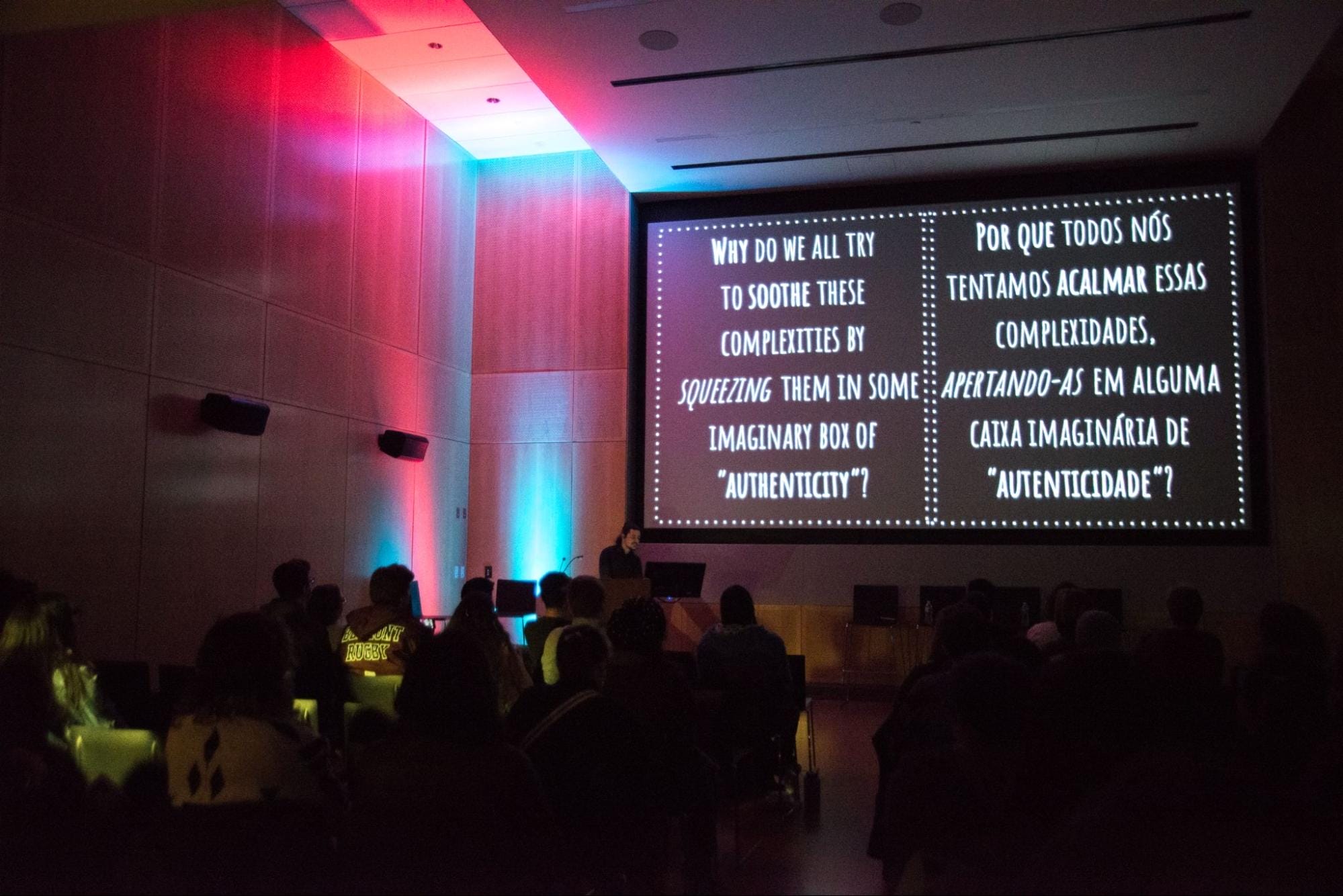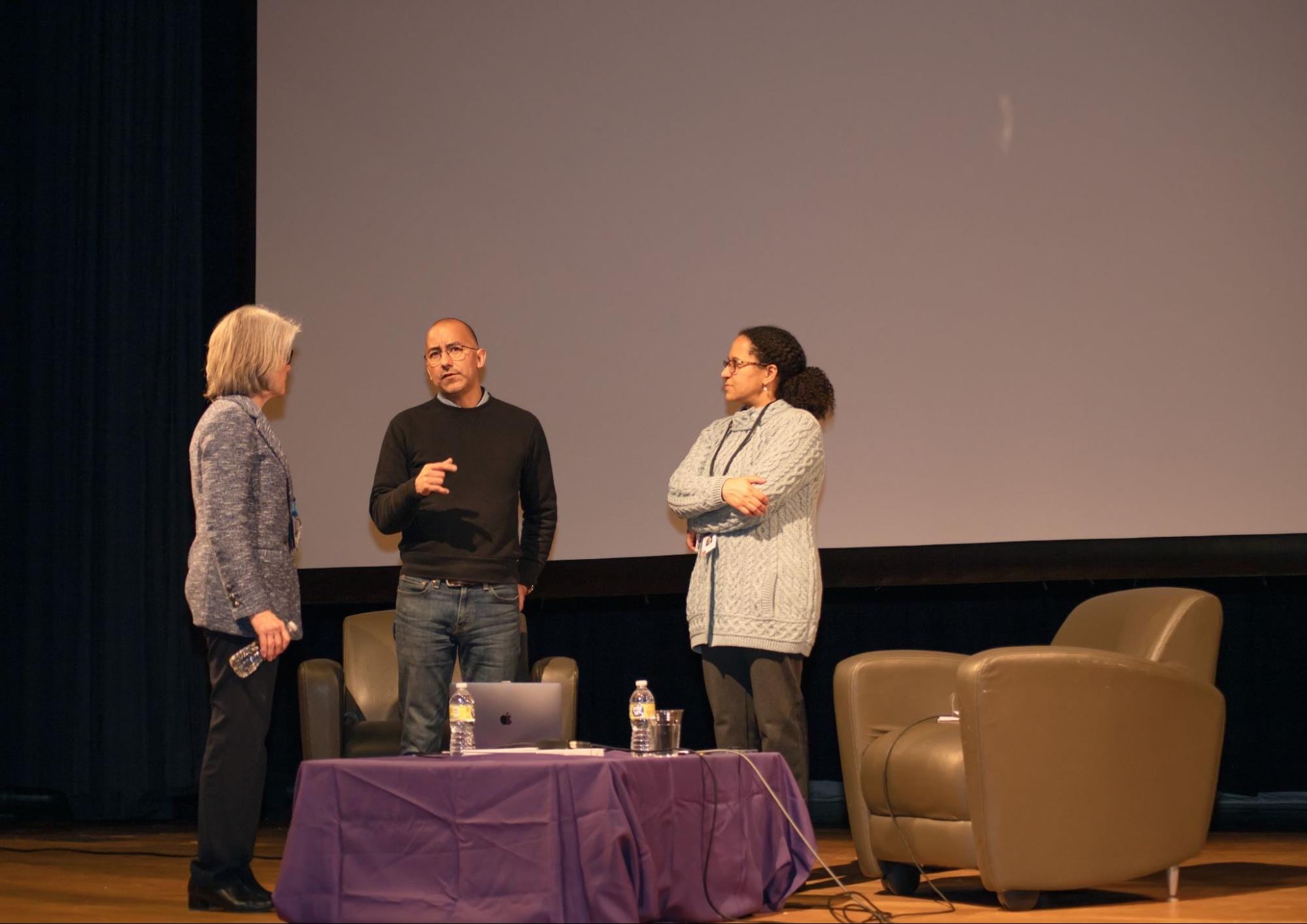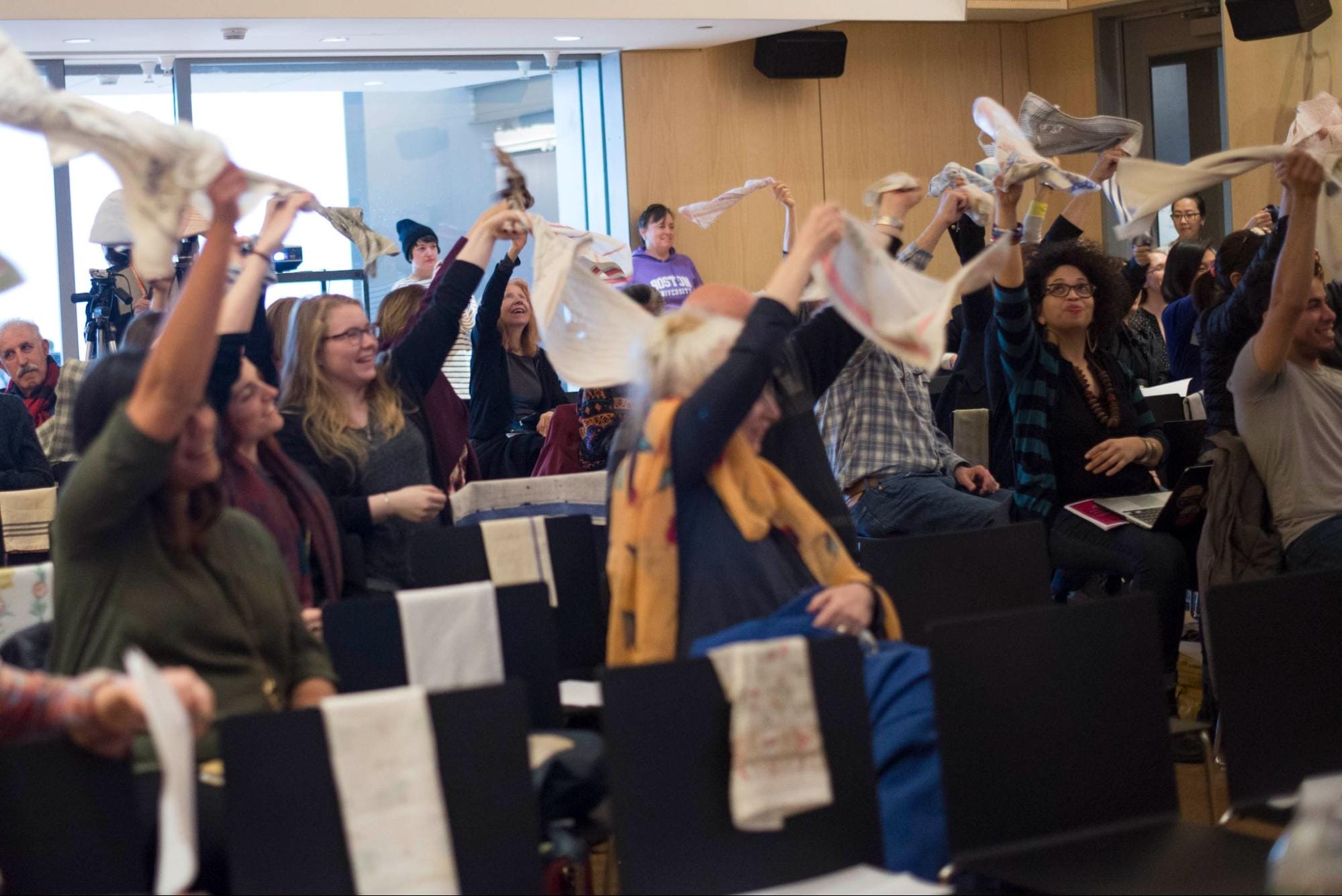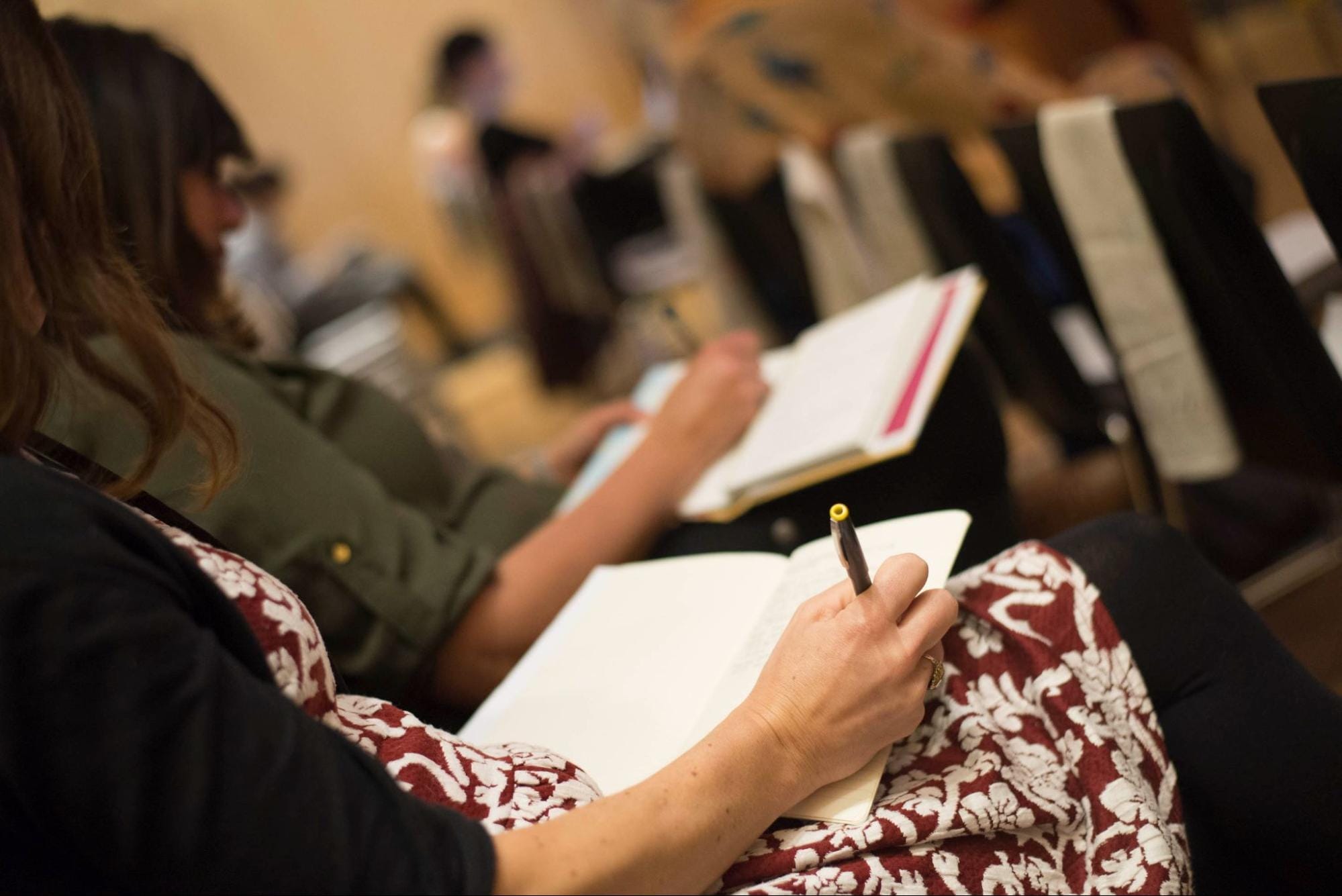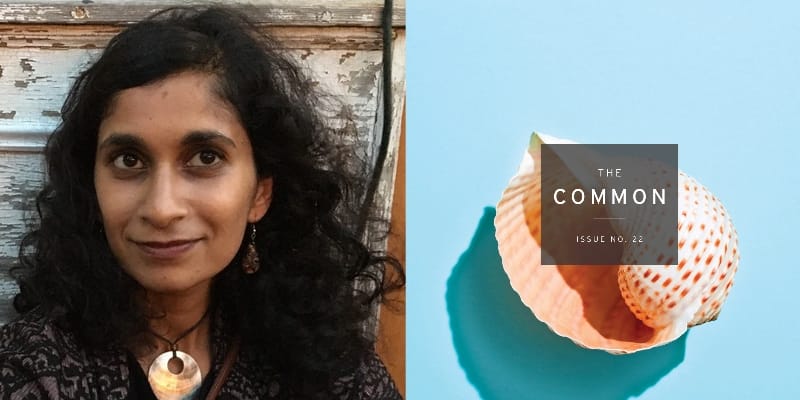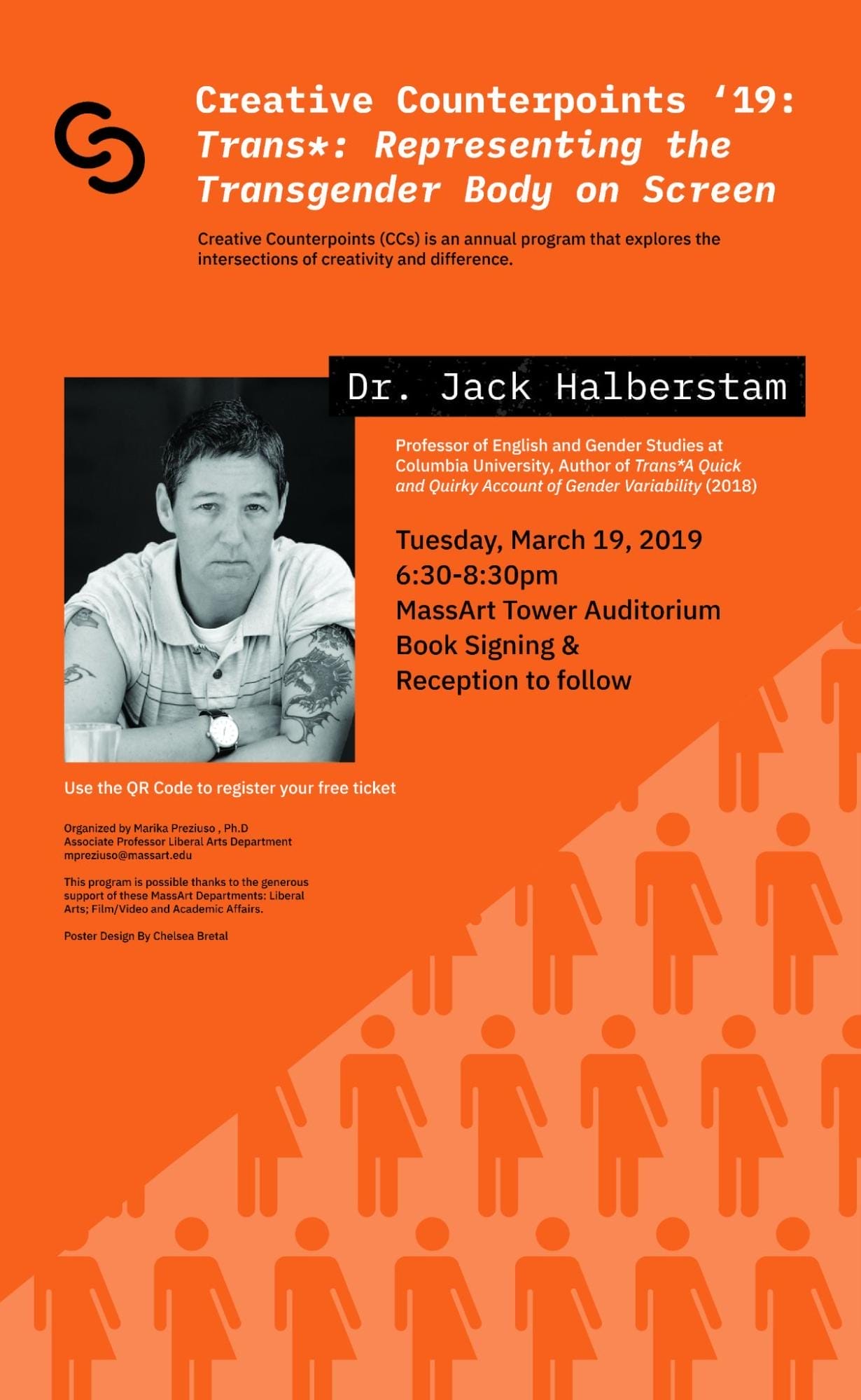
Humanities Faculty & Department Administrators
Ekua Holmes and Autumn Allen at MassArt: “Connected Legacies”
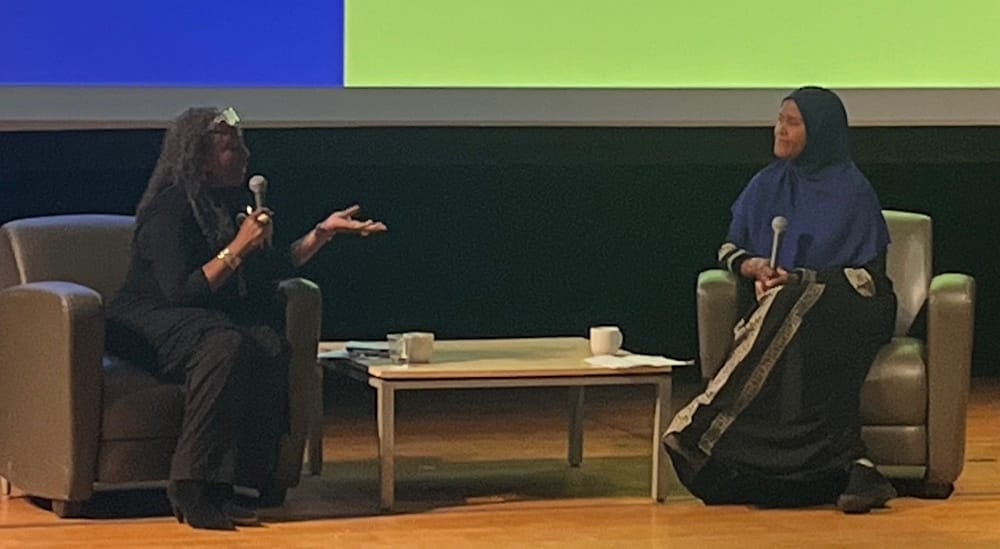
- Alumni in the News
- MassArt in the Media
- Center for Art and Community Partnerships
- Creative Writing
Our Creative Counterpoints Series features guest artists, public intellectuals and culture makers working at the intersections of geographies, languages, identities, and artistic media.
Creative Counterpoints is the MassArt series devoted to the conversations between visual artists, writers, and other culture makers who live and work across geographies, languages, identities, and media. The series’ propelling impetus is to highlight diverse creatives who utilize craft as tools, narratives, and lenses to reflect on and redress social inequities.
In 2024, Creative Counterpoints is proud to participate in Craft in the Real World, a year-long partnership with the Creative Writing Minor, Brant Gallery, and Studio Foundation Department. The program, centered around Matthew Salesses’ seminal text Craft in the Real World, aims to catalyze conversations on the present and future of craft teaching across disciplines and media.
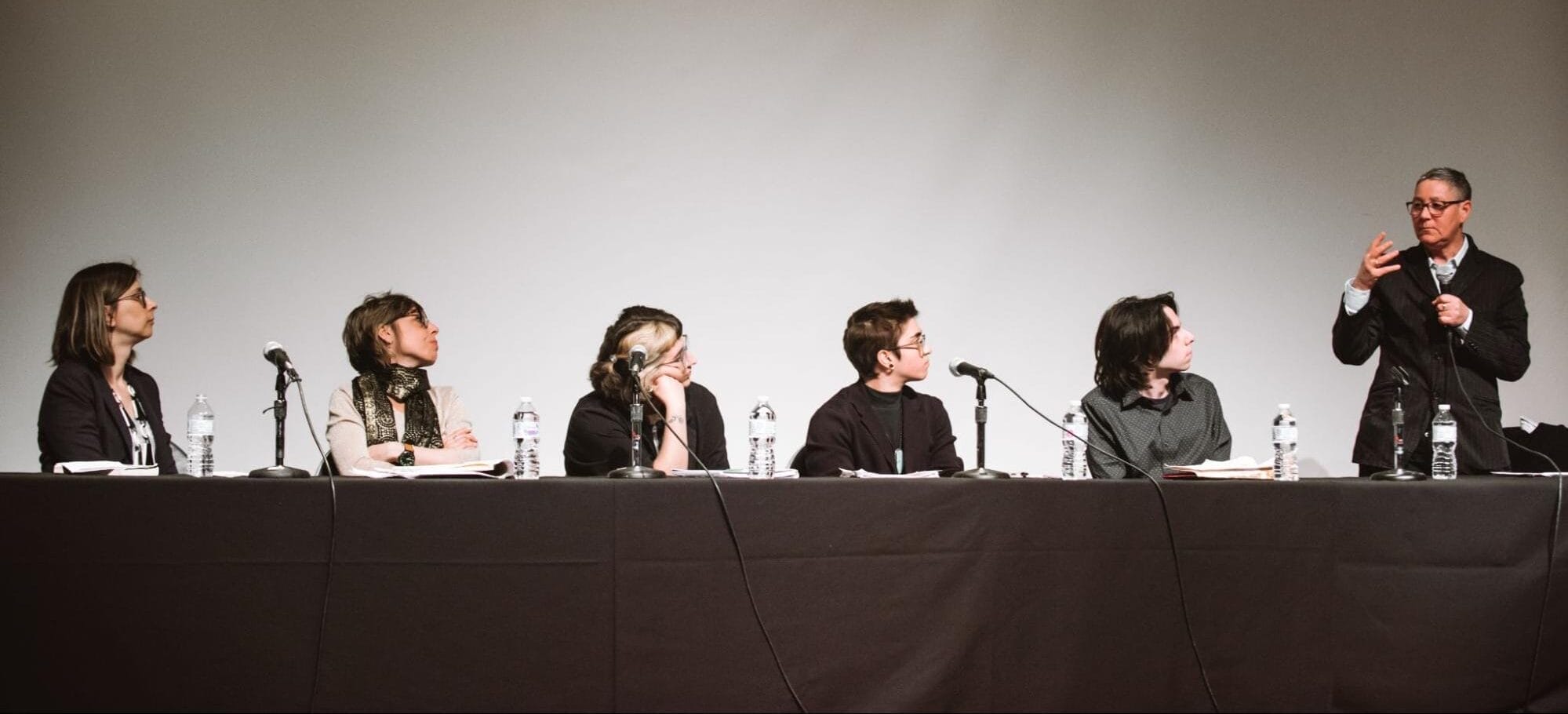
Creative Counterpoints: Jack Halberstam, and Trans* Representing the Transgender Body on Screen, March 2019.

Creative Counterpoints began in March 2016, thanks to a MassArt Foundation Fellowship Grant awarded to Marika Preziuso ( Professor, Humanities) to attend the Transnational Feminist Summer Institute (TFSI) at Ohio State University, and organize a program engaging the MassArt community in critical questions and debates of transnational feminism.
Previous Creative Counterpoints speakers include authors Valeria Luiselli ( Tell Me How It Ends, Lost Children Archive) and Nnedi Okorafor (Akata Witch, Binti), gender studies scholar Jack Halberstam (Trans*, Female Masculinity), visual artists Sherazade Garcia ( The Map in My Skin) and Vincent Valdez (In Memory). The series has featured student exhibitions, presentations by MassArt alumni – Gustavo Barceloni (Ceramics, ‘17), Mariana Yanes Cabral (Art Education, ‘17), and Ryan Vazquez (Film/Video, ‘17), whose work highlights practices of cultural and linguistic translation, research presentations on media interventions in social justice by Anne Sisto (DMI‘16) and X Wang ( MFA Photo, ‘16).
Creative Counterpoints is possible thanks to the support of the Humanities Department, the President’s Office, the Office of Academic Affairs, and The Office of Justice, Equity, and Transformation (JET).
Christopher Bakriges
Visiting Lecturer, Humanities
Ryan Banfi
Visiting Lecturer, Humanities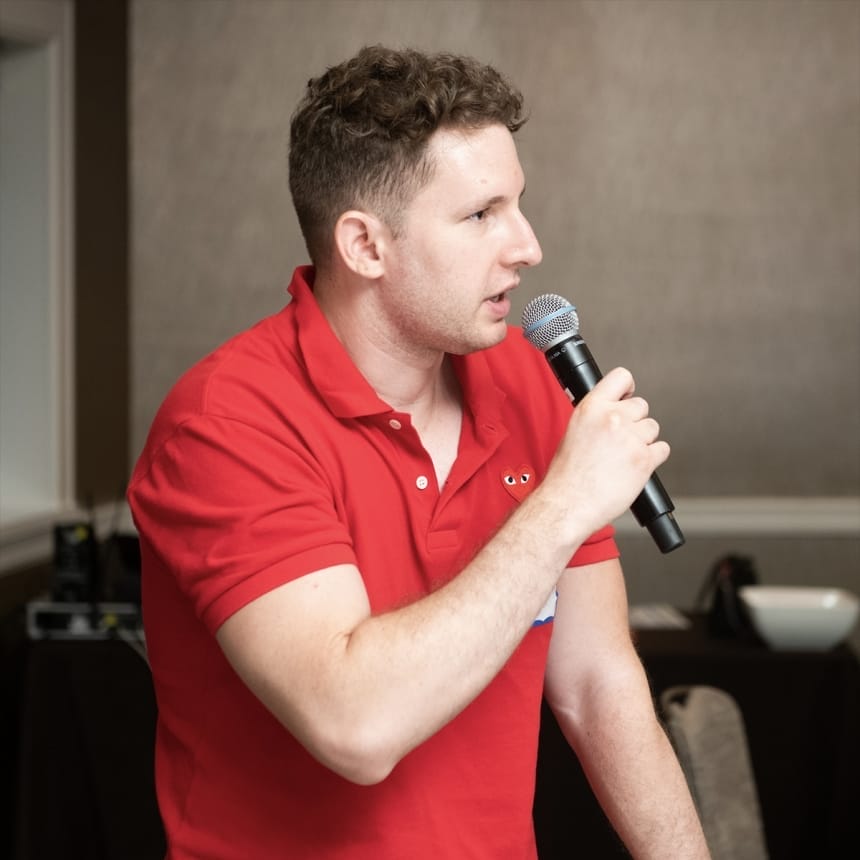
Paul-André Bempéchat
Visiting Lecturer, Humanities
Amanda Brandt
Visiting Lecturer, Humanities
Cheryl Clark
Creative Writing Minor Coordinator, Creative Writing
Joshua Cohen
Professor, HumanitiesAqueela Culbreath-Britt
Visiting Lecturer, Humanities
Jeanette Eberhardy
Professor, Humanities
Norrie Epstein
Visiting Lecturer, Humanities
Jennie-Rebecca Falcetta
Professor, Humanities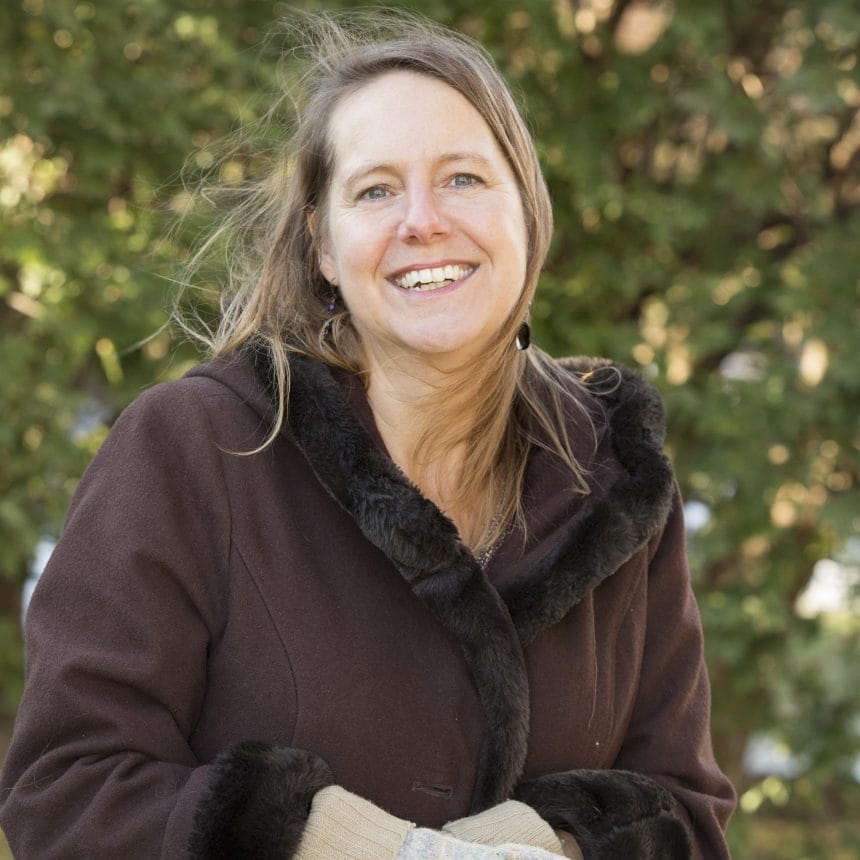
Denise Frame Harlan
Visiting Lecturer, Humanities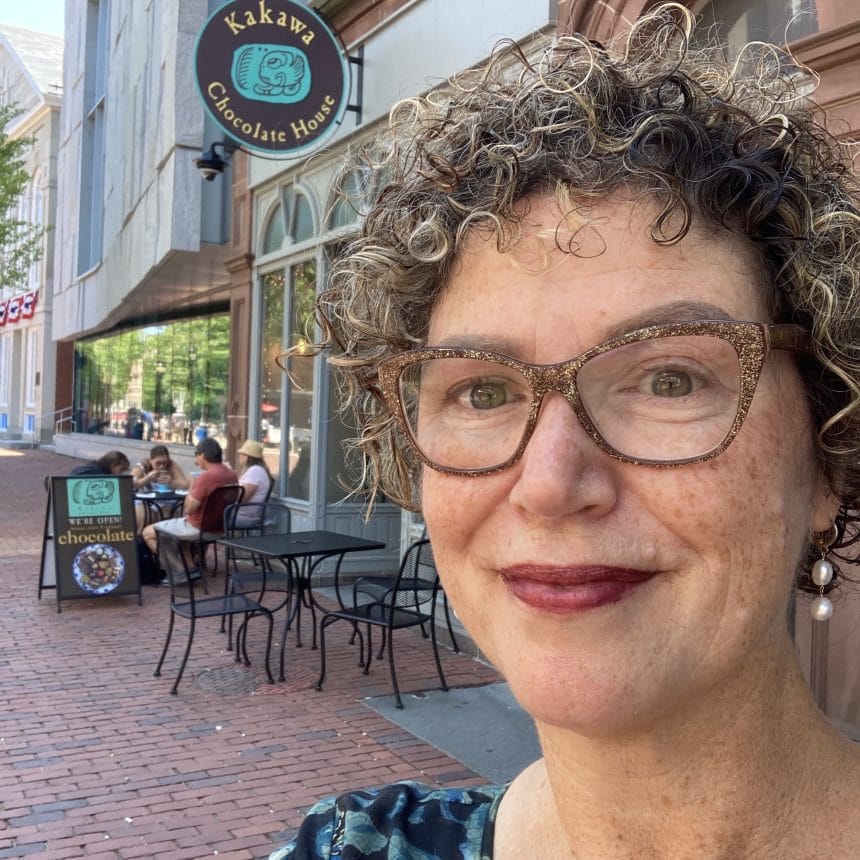
Robert Gerst
Professor, Humanities
Katie Gilbert
Visiting Lecturer, Humanities
Alan Gluck
Visiting Lecturer, Humanities
Max Grinnell
Visiting Lecturer, Humanities
Lin Haire-Sargeant
Professor, HumanitiesMichael Hamburger
Visiting Lecturer, Humanities
Candis Hilton
Admin Assistant II, History of ArtPeter Kenagy
Visiting Lecturer, Humanities
Albert Lafarge
Visiting Lecturer, Humanities
Dean Lampros
Visiting Lecturer, Humanities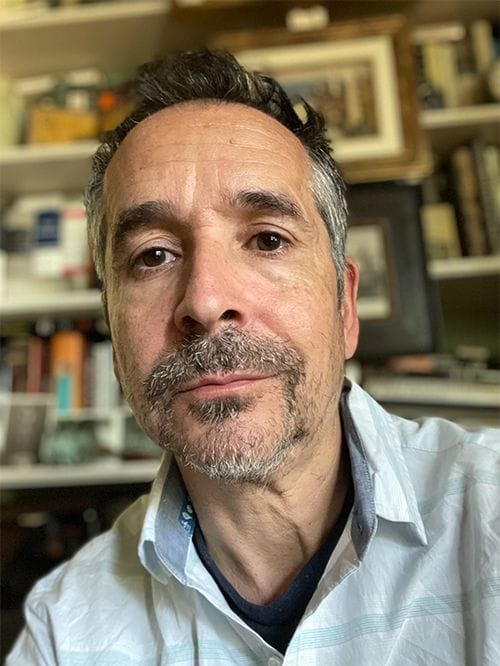
Lisong Liu
Program Area Chair – History, Humanities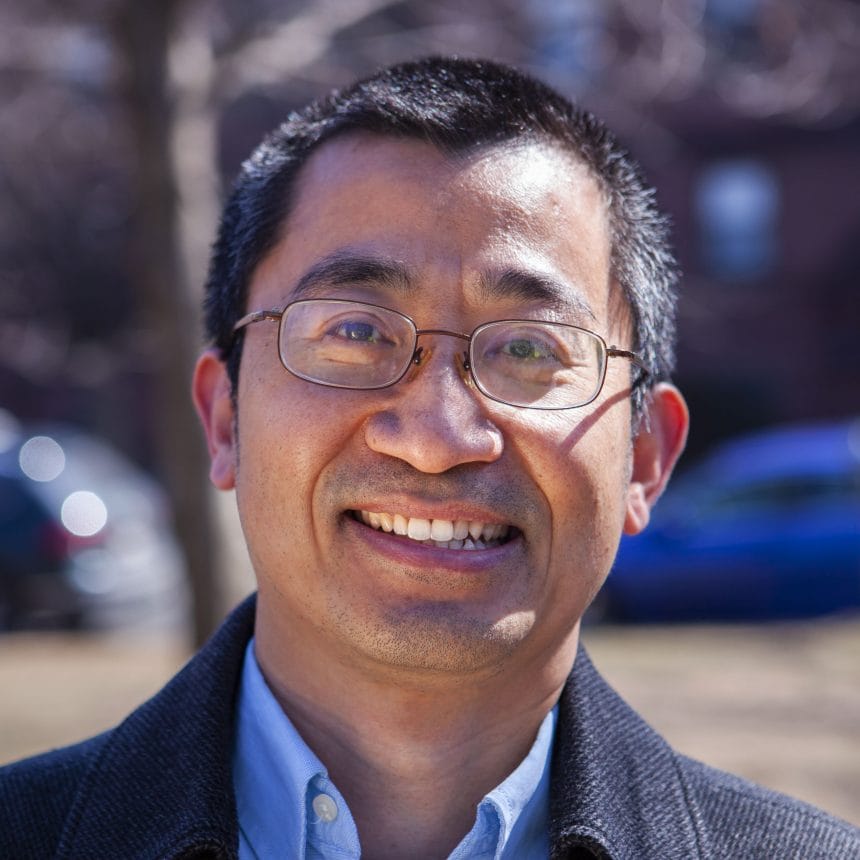
Helen Miller
Visiting Lecturer, Studio Foundation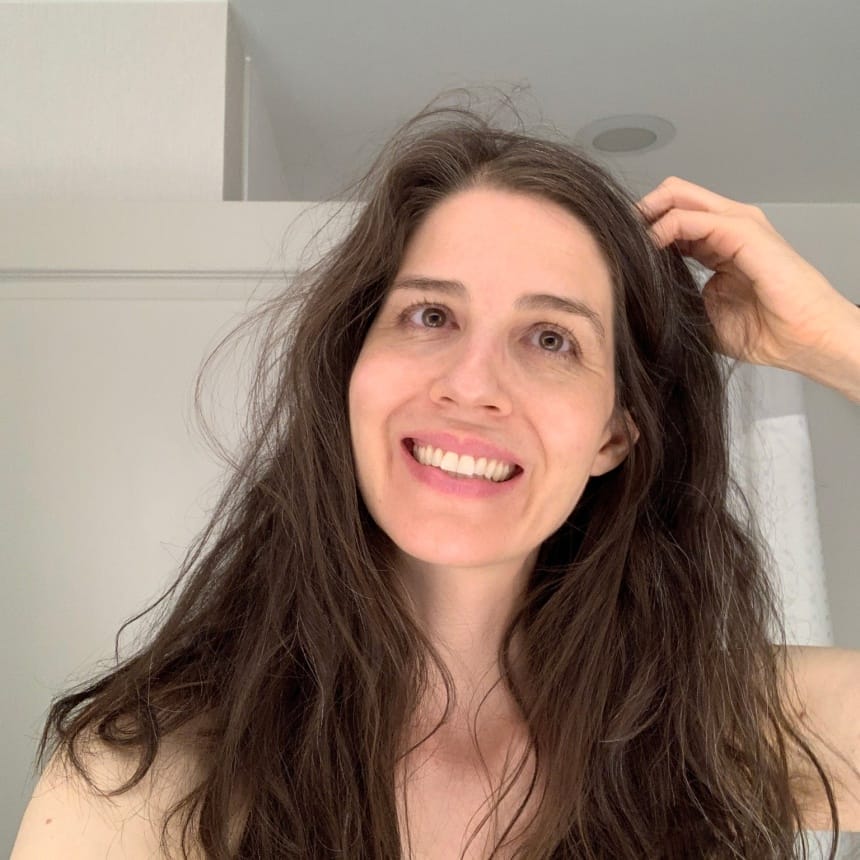
Richard Murphy
Visiting Lecturer, Humanities
Jeffrey Nowlin
Visiting Lecturer, Humanities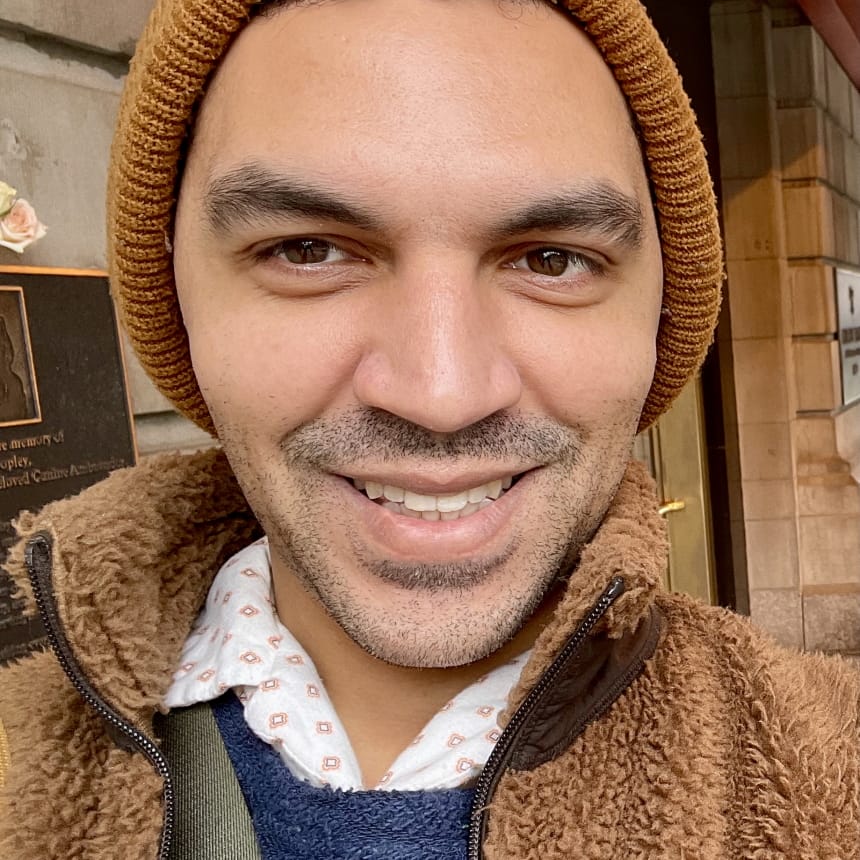
Luis Paredes
Visiting Lecturer, Humanities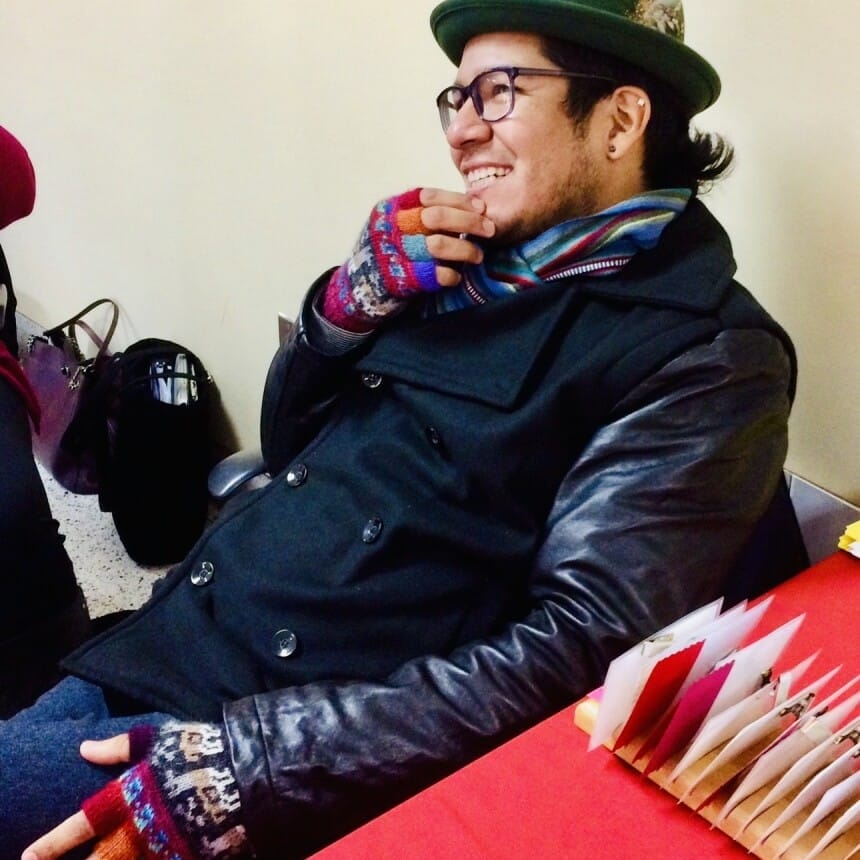
Krina Patel
Visiting Lecturer, Humanities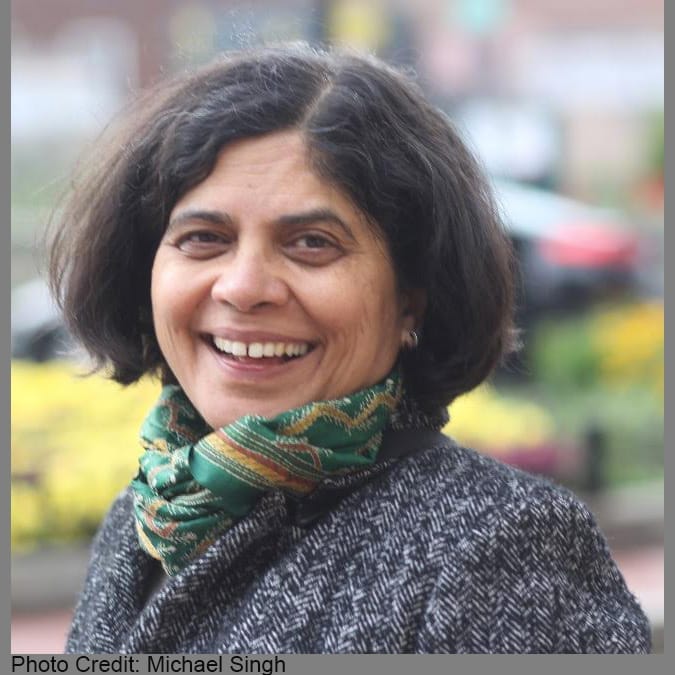
Marika Preziuso
Chair, Humanities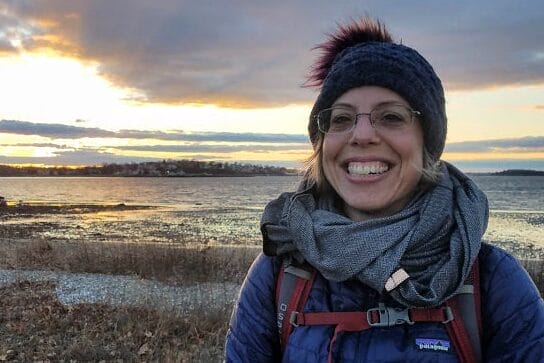
Lisa Prout
Visiting Lecturer, Humanities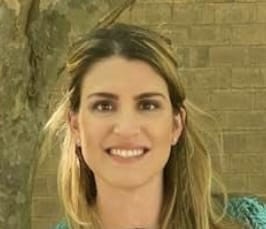
Ally Sass
Visiting Lecturer, Humanities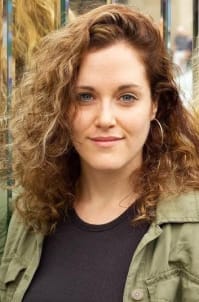
Enzo Silon Surin
Visiting Lecturer, Humanities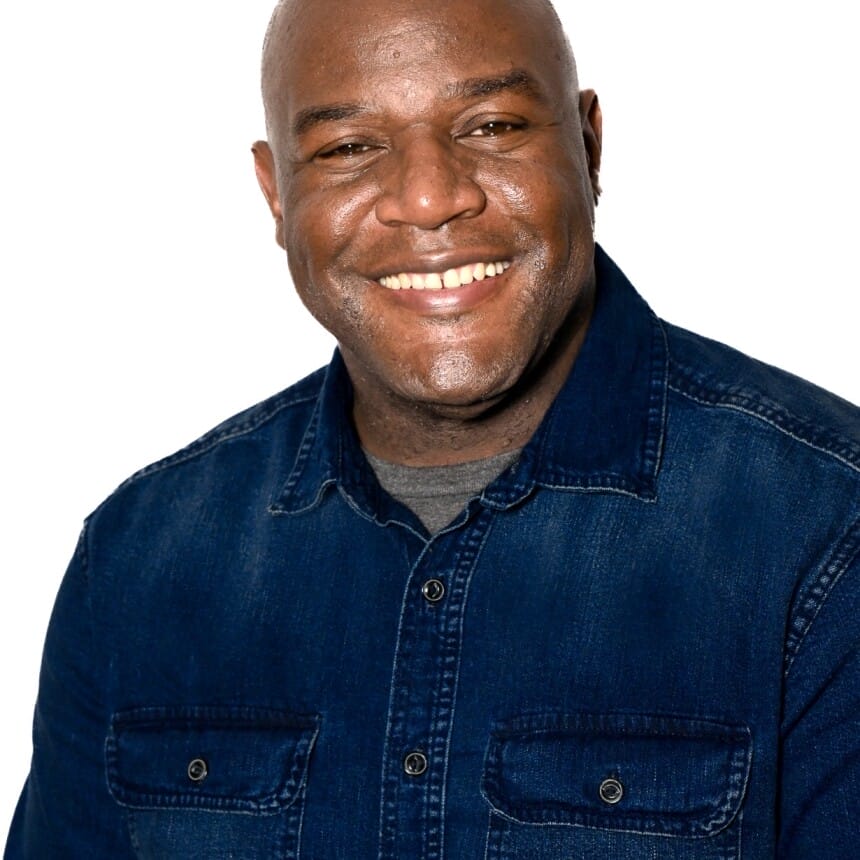
Maura Smyth
Program Area Chair – First Year Writing, Humanities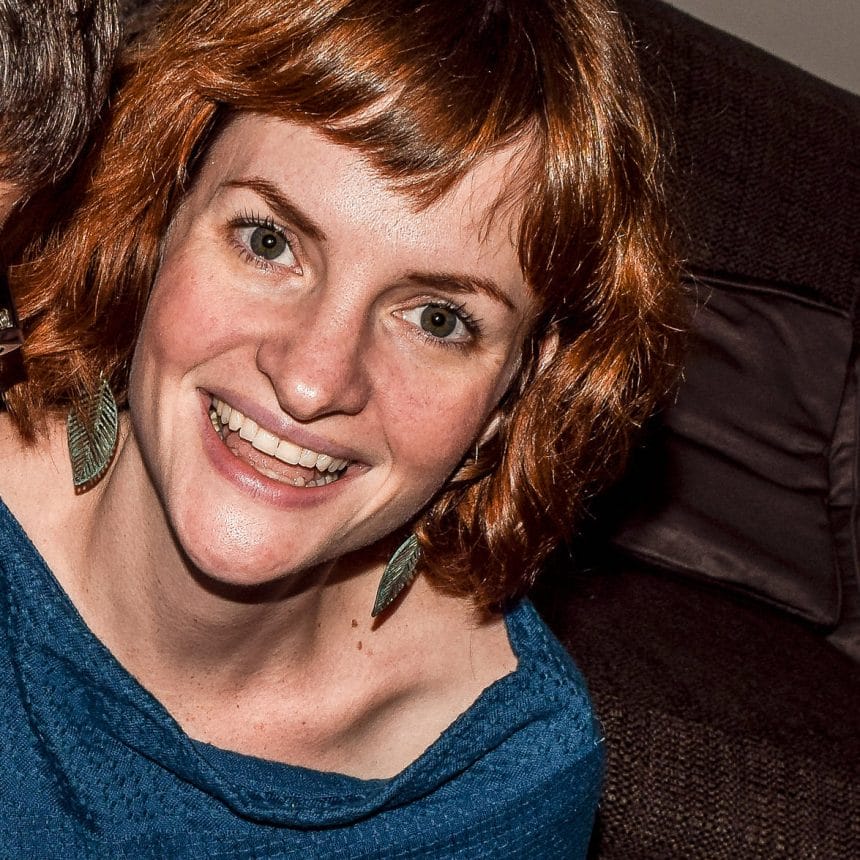
Renee Spellman
Visiting Lecturer, Humanities
Leon Steinmetz
Visiting Lecturer, HumanitiesDaphne Strassmann
Visiting Lecturer, Humanities
Bethany Strohm
Visiting Lecturer, Humanities
Chanel Thervil
Visiting Lecturer, Humanities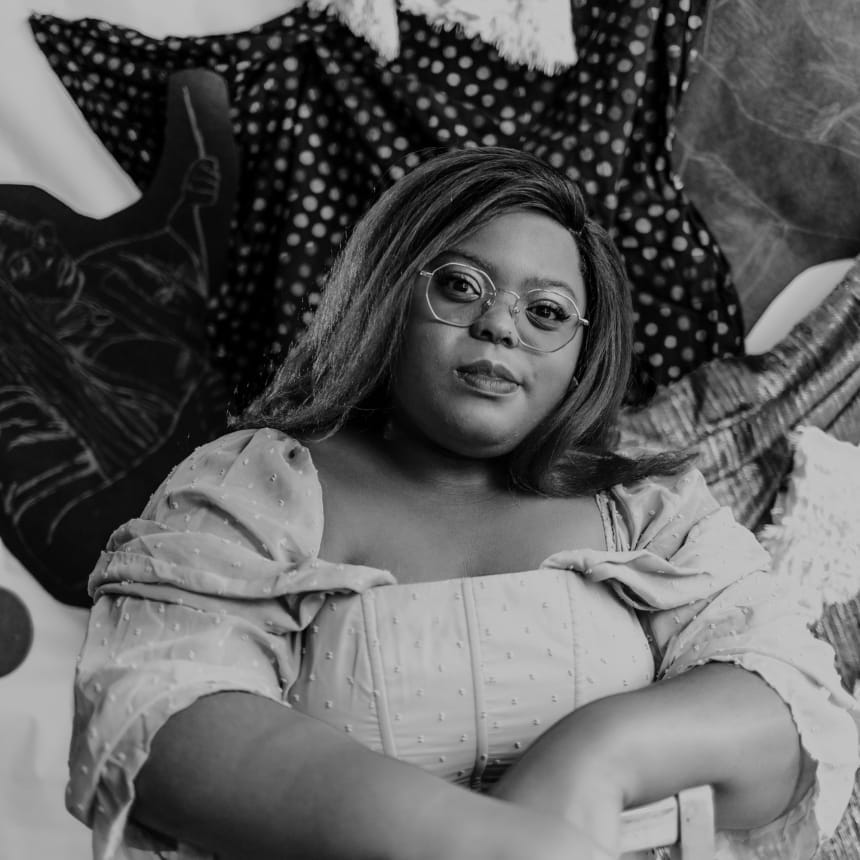
Anri Wheeler
Visiting Lecturer, Humanities
Chloe Zimmerman
Visiting Lecturer, Humanities
In Humanities, students grow the knowledge, tools, skills, and habits to engage in community and imagine new possibilities through their creative practice.
In Humanities classes (in literature, film studies, history, music and philosophy, among other fields), students learn the core skills of critical thinking, creative and critical writing, self-reflection, empathetic observation, presentation skills, historical methods, and rigorous research fueled by curiosity.
By cultivating these core skills, students learn to adjust to new cultures and perspectives; to tell new stories and give voice to visions relevant to their communities; and to cultivate agency in every aspect of the creative process.
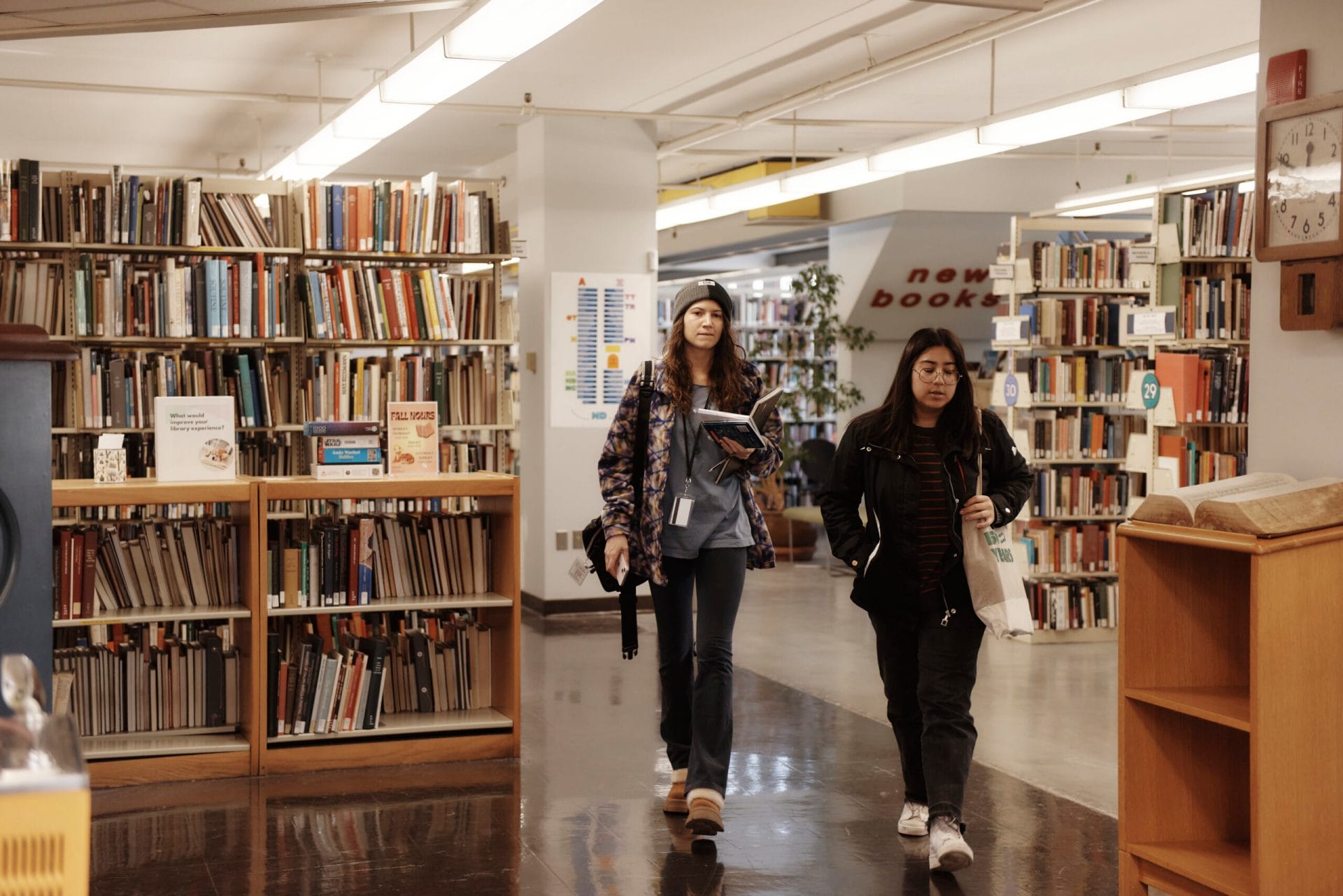

Every MassArt degree program includes at least eight general education courses offered in the Humanities and Integrative Science and Biological Arts (ISBA) departments, designed to provide context, insight, critical skills and informed perspectives for students pursuing the arts.
First Year seminar is offered in Humanities, Integrative Sciences and Biological Arts, and History of Art. It is a rigorous, supportive and immersive whole-person learning experience designed to ground MassArt’s artists and designers in the skills, knowledge and life habits necessary to thrive in their foundation year at MassArt.
Our writing courses teach the craft of coherent, purposeful, and compelling written text from first draft to final manuscript. In these courses students develop an authentic artistic voice by writing an artist’s statement, revising a grant application, experimenting with cinepoetry, and reading stories in translation.
In literature and film criticism courses students engage with texts from multiple fields, genres and cultural traditions, discern complex layers of idea and meaning in verbal, written or cinematic art, and forge a personal canon relevant to their creative life.
In history courses students learn the historian’s craft: they differentiate, evaluate, and contextualize primary and secondary sources, examine the deep connections between the past and present, and practice historical methods that emphasize transcultural and global perspectives.
In our humanities electives in music and musicology, gender studies and philosophy (among others), students explore aesthetic, cultural and ethical questions relevant to their place in the world. They may study music from around the world and the US, or examine their artistic freedom in a democracy.
In Humanities, students grow the knowledge, tools, skills, and habits to engage in the community and imagine new possibilities through their creative practices. In our courses, students:
- Cultivate close observation, self-reflection, and empathic and critical inquiry to understand the world and their place in it.
- Attend to the exploration and expression of craft, methods, form, purpose, and audience.
- Communicate ideas with honesty, respect for other viewpoints, and a commitment to the common good.
- Engage in responsible, curiosity-driven research to broaden their perspective and deepen the meaning of their work.
- Contextualize what they learn and create across historical, cultural, and global frameworks.
- Make their best work through revision, experimentation, and community-oriented critiques.
- Forge connections across fields of knowledge and with peers from all majors.
- Reflect on their intellectual, creative, and emotional growth and its impact across the college and on the community.
Program Chair
Marika Preziuso
Chair, Humanities
I believe in the power of differences as a space of connection, understanding, and mutual growth as catalysts of the learning process.Marika Preziuso
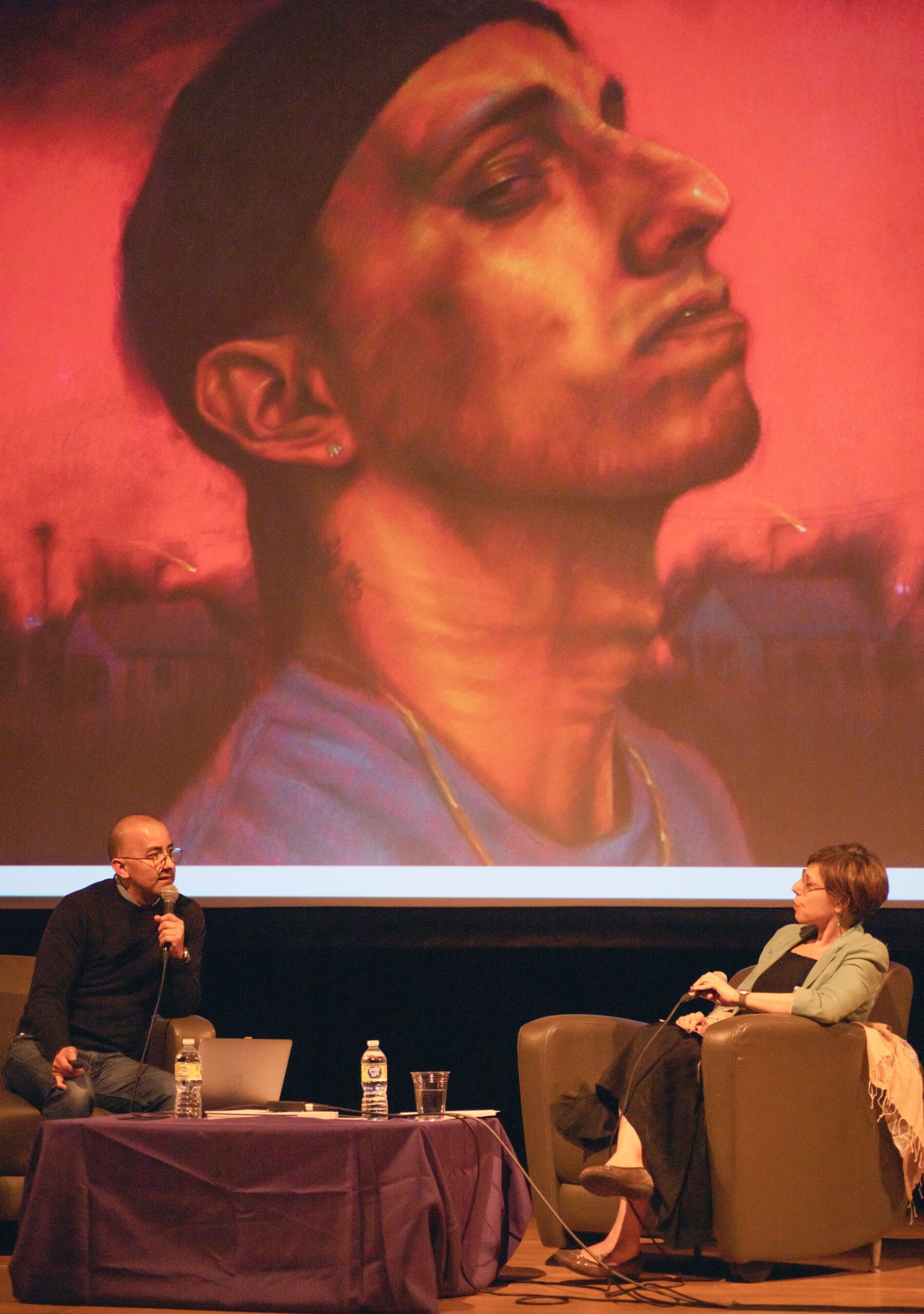
Learn about Creative Counterpoints, our annual series devoted to the intersections of creativity and difference as investigated by visual artists, writers, public intellectuals, and other culture makers.
Learn moreAt MassArt, visual artists and designers thrive as creative writers, giving voice to their unique perspectives and untold stories.
As a Creative Writing Minor student at MassArt, you’ll join a community of visual artists and designers who are passionate about writing creatively and integrating the written word into their creative practice. Learning from one another, accomplished faculty, and diverse visiting writers, you can create poems, stories, plays, graphic narratives, personal essays, scripts, and yet-to-be-defined genres. Read widely, workshop your writing, and find innovative ways to integrate the visual and the verbal.
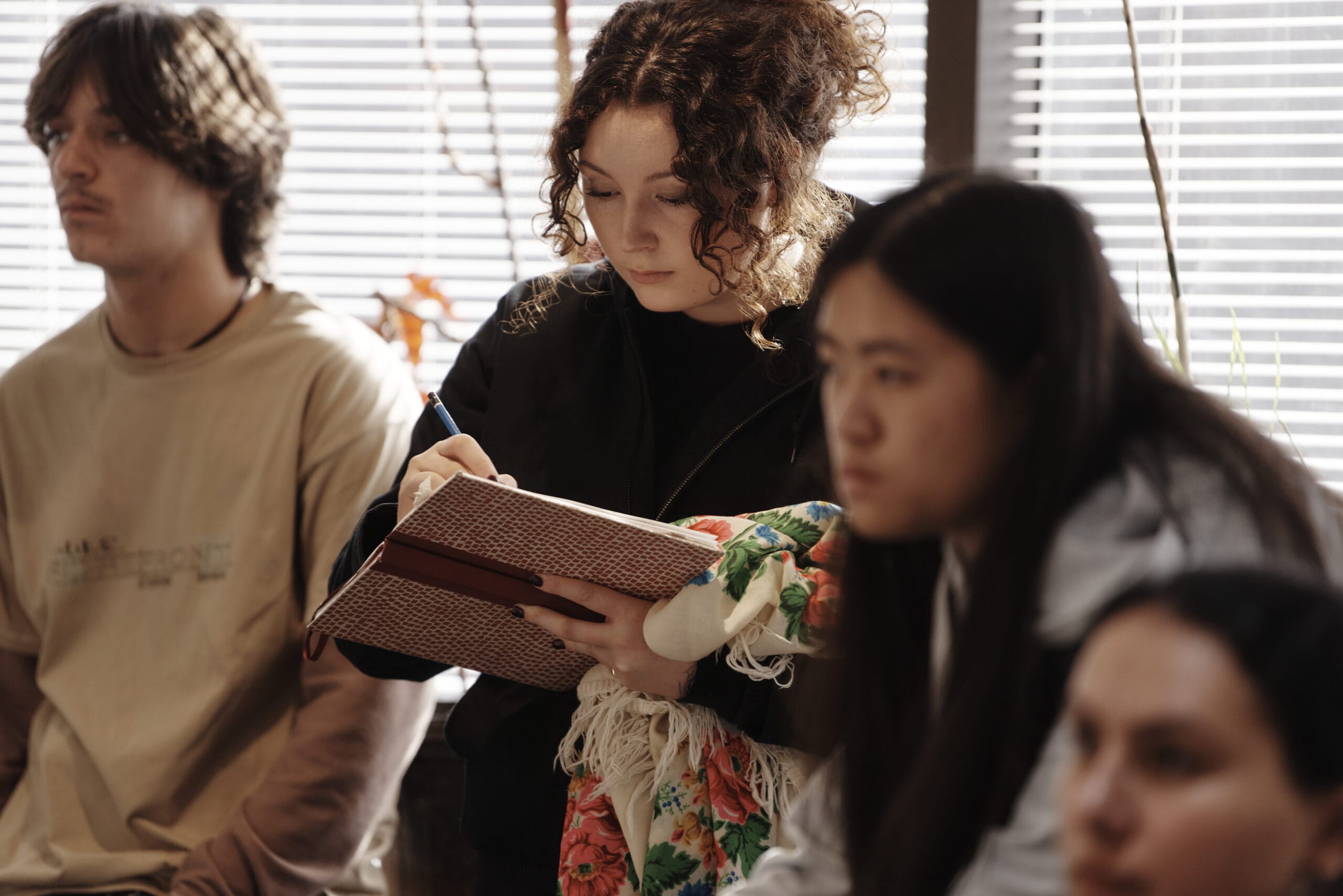

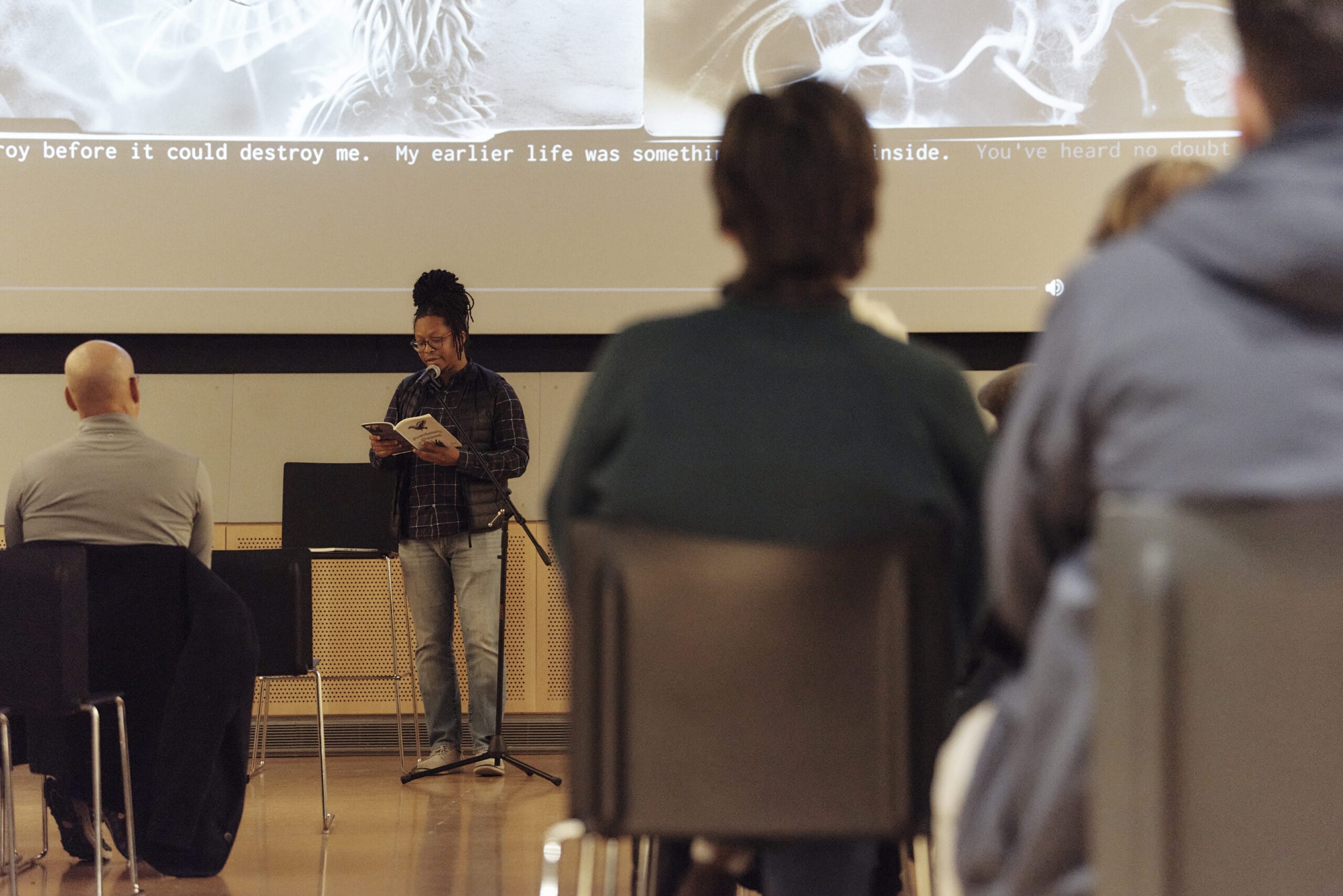
In our program, you’ll have an advisor through the Humanities Department who assists you in choosing courses and planning for the future. You can complete your general education requirements while writing creatively through 18 credits of literature and creative writing courses, generally six 3-credit courses.
Among the Creative Writing Minor course options:
- Literature in Dialogue (prerequisite for all others)
- Creative Writing: A Multigenre Workshop
- Fiction Workshop
- Poetry Workshop
- Film Script Writing/Adaptation
- Children’s Literature
- Creating a Comic Book
- Memoir & the Artist
- Artist’s Writing
You may officially declare your Creative Writing Minor at any time through MassArt’s Registrar’s Office.
Creative Writing Minor Learning Objectives
Students who complete the Creative Writing Minor program are expected to be able to demonstrate the following learning objectives.
- Write poems, stories, plays, graphic narratives, and more
- Distinguish yourself as artist/designer and creative writer
- Meet other students with literary aspirations
- Connect art or design with writing
- Explore the world of contemporary creative writing
- Interact with established writers
- Read, perform, and present your own work
- Discover innovative ways of writing and communicating
- Listen to and learn from diverse writers
- Put into practice what you learn from literature
- Enlarge your understanding of humanity and the world through literature and writing
Program Director
Cheryl Clark
Creative Writing Minor Coordinator, Creative Writing
Bedford Pianist Paul-André Bempéchat Salutes Beethoven on Dec. 16
- MassArt in the Media
- Humanities
“Internationally acclaimed pianist Paul-André Bempéchat (professor, Liberal Arts) will honor the birthday of Ludwig Van Beethoven with a performance of three of the composer’s most beloved piano sonatas. The concert will take place on Friday evening, Dec. 16 at First Parish on the Common at 7:30 p.m. with an in-person audience. It will also be available via Zoom.”
“The concert is a benefit for First Parish music and for The Shelf, a service that offers free food to students at MassArt (Massachusetts College of Arts and Design) where Bempéchat teaches. The artist noted his distress at learning of food insecurity among students at the college and offered to do a benefit performance.”
“Shubha Sunder speaks to managing editor Emily Everett about her story “A Very Full Day,” which appears in The Common’s fall issue. In this conversation, Shubha talks about writing stories set in India, and how she built out the insular world of Indian retirees that “A Very Full Day” centers on. She also discusses teaching creative writing to undergrads, her revision process, and her forthcoming collection of stories Boomtown Girl, which won the St. Lawrence Book Award.”

